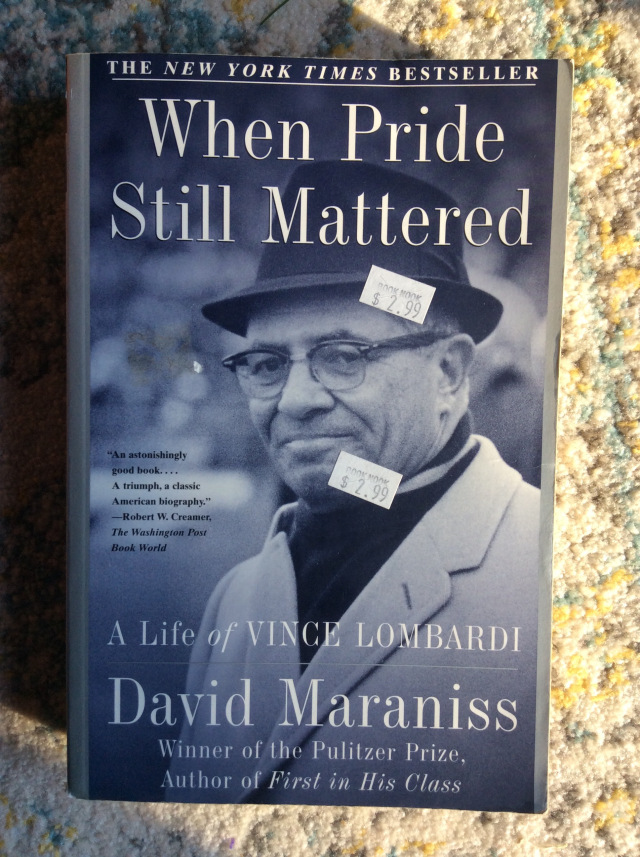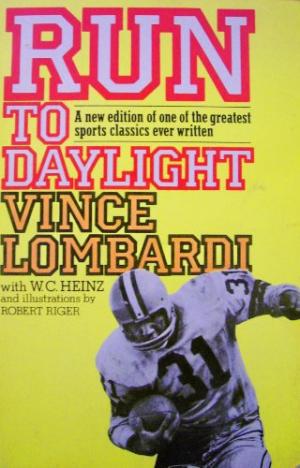“…an intolerable disparity between the hugeness of their desire and the smallness of reality” (p. 69, attributed to Ignatius Loyola).
 Monday night after the kids went to bed, I managed about 60 pages in When Pride Still Mattered. The material that I read showed Coach Vince Lombardi at high tide, as his Green Bay Packers won two NFL championships (1961 and 1962); as a result, Lombardi’s legend and celebrity grew.
Monday night after the kids went to bed, I managed about 60 pages in When Pride Still Mattered. The material that I read showed Coach Vince Lombardi at high tide, as his Green Bay Packers won two NFL championships (1961 and 1962); as a result, Lombardi’s legend and celebrity grew.
The Narrative
The material in these sections is interesting, with many hooks to grab the reader. After recounting the Packers’ 1961 championship, Maraniss devotes an entire chapter (#16) to describing an Elks Club banquest in which football’s top people feted Lombardi and acknowledged his coaching prowess.
Then, in Chapter 17, Marranniss discusses how author W.C. Heinz followed Lombardi during the 1962 season to gather material for the book Run to Daylight. The reader also gets vivid details of the Packers’ 16-7 win in the 1962 championship game over the New York Giants at a frigid Yankee Stadium. The last parts that I read focused on “Golden Boy” running back Paul Hornung’s suspension for gambling before the 1963 season.

Lombardi’s & Heinz’s book
Revealing Anecdotes
Two anecdotes from the reading particularly “grabbed” me.
First, after the Packers’ championship win over the Giants in 1962, Lombardi was unaware that his wife and daughter had been left behind in New York when the Packers’ plane flew back to Wisconsin. Devotion to family was not Lombardi’s strong suit.
Second, Lombardi generally treated national sportswriters well, but was contemptuous of the local Wisconsin reporters. Maraniss interprets this as both insensitive and Machiavellian; the local reporters could do less to enhance Lombardi’s reputation and he feared that they would disclose key information about the Packers to rival teams.
Two Thoughts Dominate
As I head toward the homestretch with this book, it brings to mind two main thoughts –

Paul Hornung
First, is the old question, what good are heroes? What do we learn from Lombardi? For me, it’s covered by the Loyola quote at the beginning. Heroes are exemplary. Most of us eventually run up against that frustration where our small realities offer cold comfort next to our huge desires. The hero seems to have escaped this bind by making reality match desire. Lombardi’s story shows us how one person did that, but also shows that he paid a very heavy price to do so.
Second, I think about football’s place in society. Maraniss points out that Lombardi was pivotal in pro football’s movement from its small-time beginnings to the colossus it has become today. But, recent revelations about player health suggest that we will never see football in the ways that we used to see it. So, today Lombardi also represents a past that we can never recapture.
I’m still enjoying this one. I’ll stick with my rating of 8 out of 10.
Advertisements Like this:Like Loading... Related





